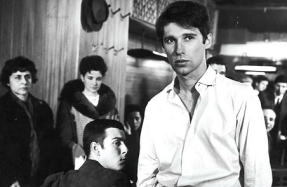
ith her 1818 novel , Mary Shelley not only authored a story that passed into myth, but also invented a new type of monster that exists independent of that story. It is the Monster—and a familiar but shifting set of surrounding circumstances—that has been numerously adapted over several decades, creating wildly varying resemblances between the original text and its propagations. The most absolute tenet of Frankenstein’s Monster is that he is an assemblage of parts of dead bodies that is reanimated into life, though in Shelley’s original text the act is achieved by isolating the moment where decomposing flesh gives nourishment to a seed. When Shelley’s Dr. Frankenstein immediately rejects his creation, it is not the revelation of a violent or uncontrollable nature






